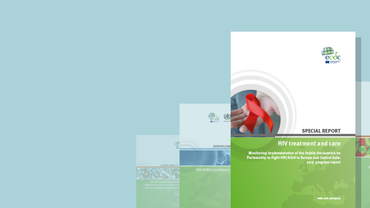Pre-exposure prophylaxis for HIV prevention in Europe and Central Asia – Monitoring implementation of the Dublin Declaration on Partnership to fight HIV/AIDS in Europe and Central Asia: 2023 progress report
This evidence brief summarises key issues and priorities for action in Europe and Central Asia on pre-exposure prophylaxis. It is based on data collected between February and August 2023, for the period 2022. If countries do not have data for 2022, the latest available data is reported.
Executive Summary
- Pre-exposure prophylaxis (PrEP) is very effective at preventing novel HIV infections when taken as prescribed. It is an important element in the ‘combination prevention’ necessary to reach the United Nations (UN) Sustainable Development Goal of ending the AIDS epidemic by 2030.
- Since 2016, PrEP has been increasingly available through healthcare systems in European and Central Asian countries. However, 13 countries reported that PrEP was still not implemented by 2023.
- Certain key populations, such as people who inject drugs, prisoners, and undocumented migrants, remain ineligible for PrEP in many countries in Europe and Central Asia.
- PrEP is mostly provided in clinical settings, such as infectious disease clinics and sexual health clinics, and requires a prescription from a medical doctor in most countries in Europe and Central Asia PrEP. Expanding the settings where PrEP is available may help improve accessibility.
- Data on PrEP uptake among key populations are limited, especially for people who inject drugs. Improved data and surveillance on PrEP uptake are vital for obtaining a proper understanding of who has access to PrEP.
- Sharing of best practice, especially those relating to feasibility, cost, and models of service delivery would support expanded provision of PrEP in the region.








